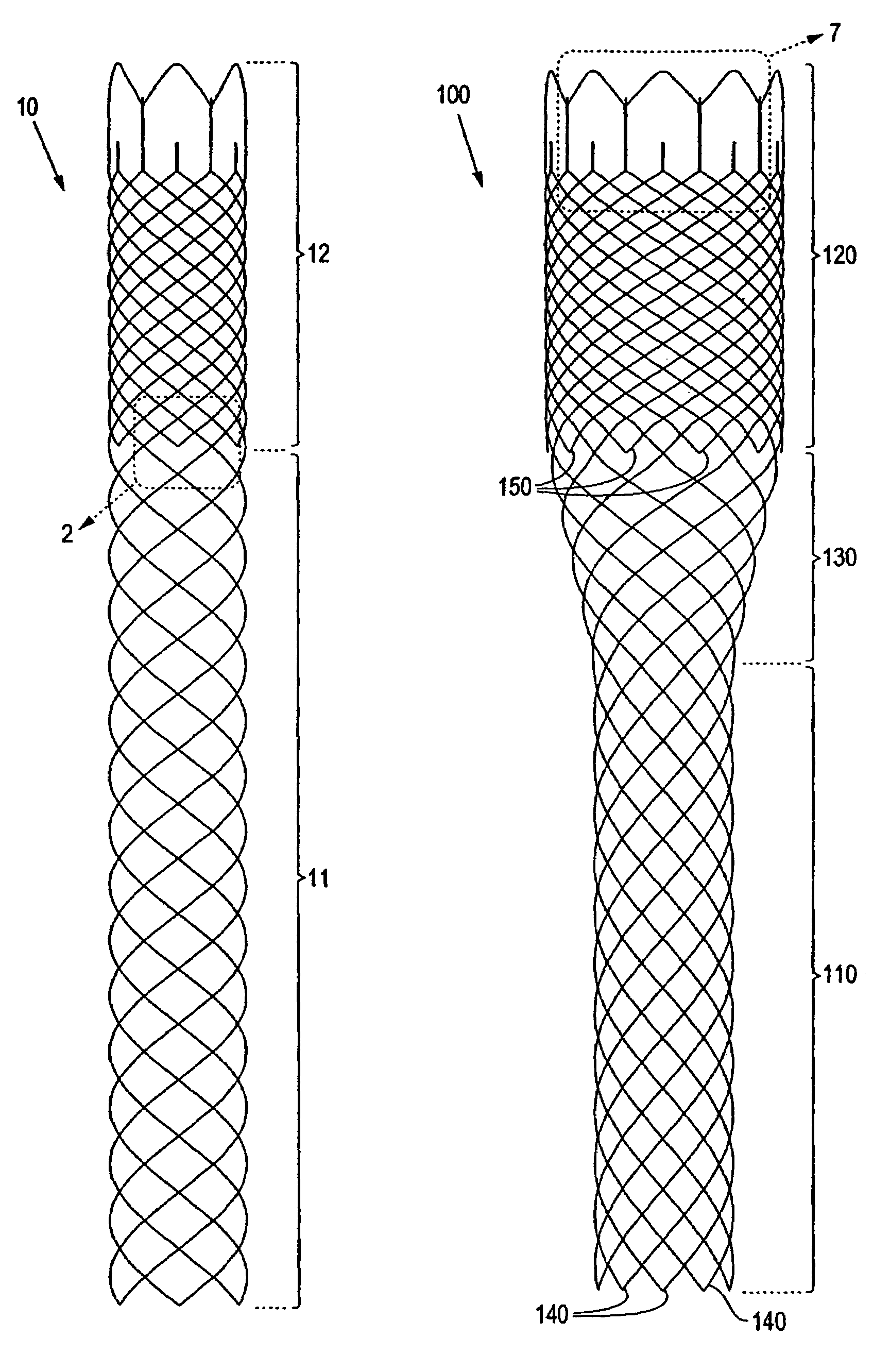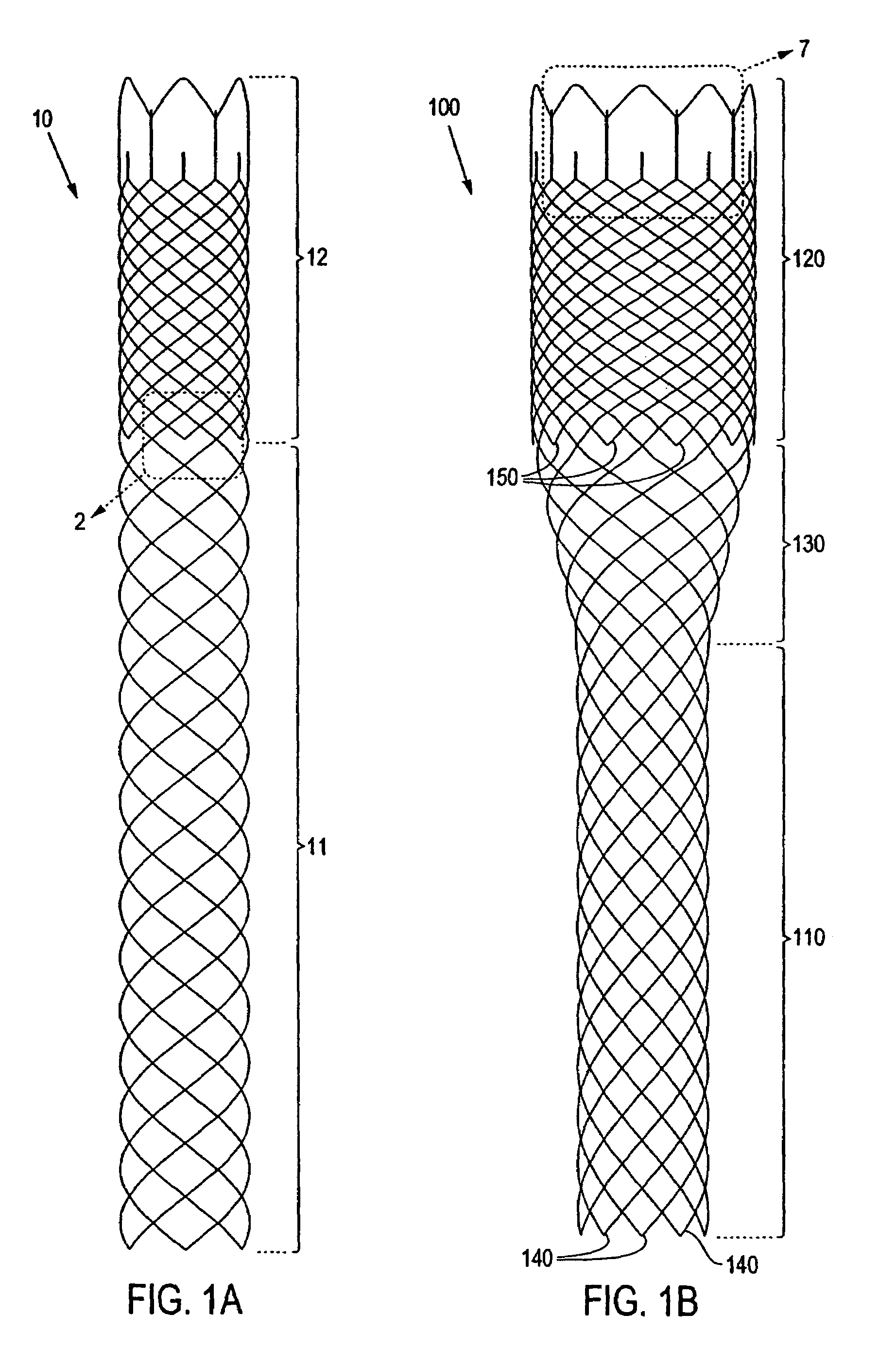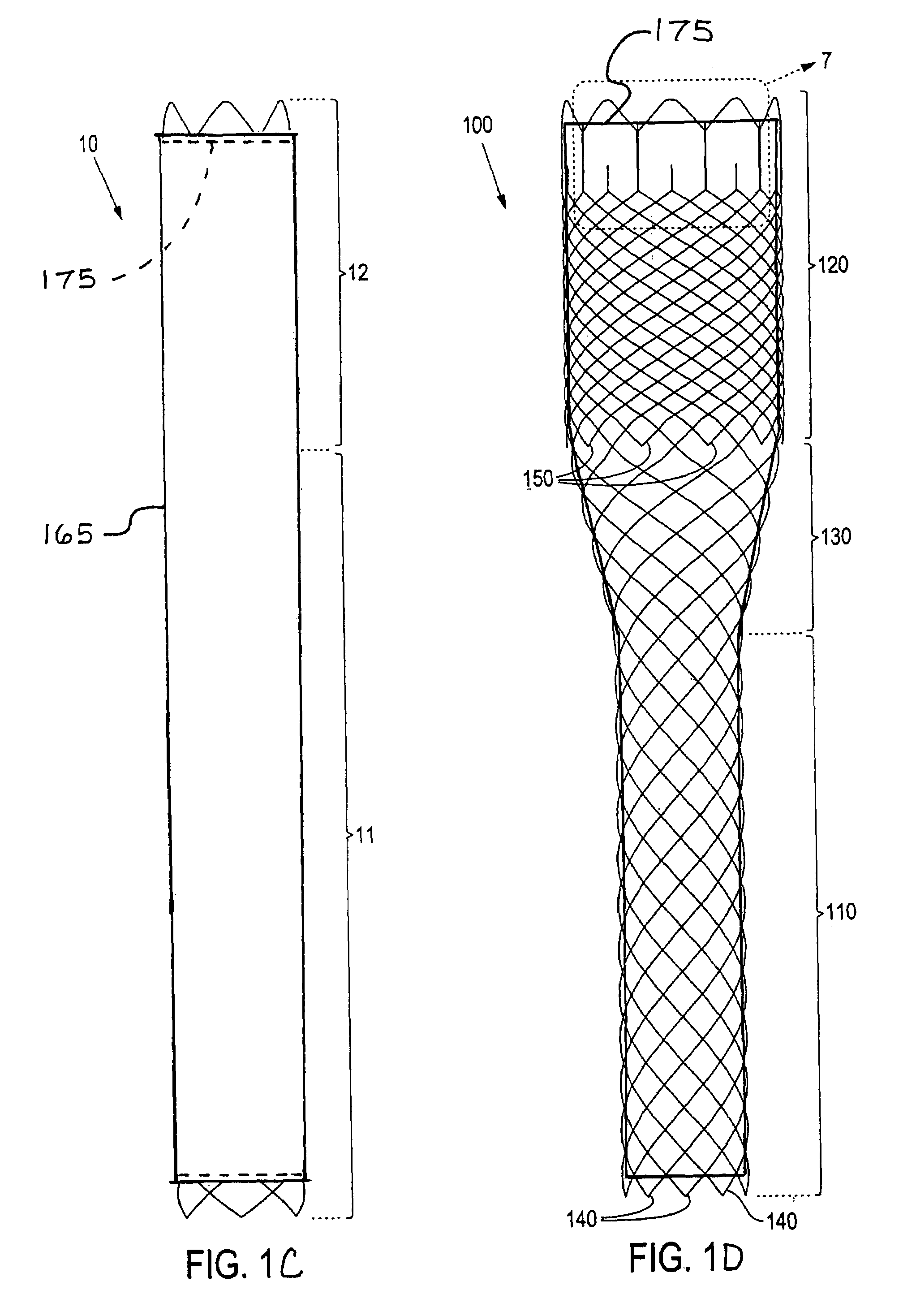Braided stent method for its manufacture
a stent and brad technology, applied in the field of brad stents and stentgrafts, can solve the problems of reducing radial strength, insufficient to adequately maintain an open passageway, and difficult intraluminal delivery and placement, and achieve the effect of increasing radial strength
- Summary
- Abstract
- Description
- Claims
- Application Information
AI Technical Summary
Benefits of technology
Problems solved by technology
Method used
Image
Examples
Embodiment Construction
[0022]The invention will next be illustrated with reference to the figures wherein similar numbers indicate the same elements in all figures. Such figures are intended to be illustrative rather than limiting and are included herewith to facilitate the explanation of the apparatus of the present invention.
[0023]Referring to FIG. 1A, there is shown a braided stent 10 according to the present invention. For purposes of this invention, a braided stent is one formed by at least two sets of parallel continuous filaments, the two sets traversing the circumference of the stent in lengthwise but angularly intersecting directions. The two sets of filaments are interlaced or interwoven to form a tubular, supportive structure. The stent shown in FIG. 1A comprises a relatively flexible region 11 and a relatively rigid region 12 (having greater radial strength than flexible region 11). Rigid region 12 comprises more filaments than flexible region 11 and therefore exhibits greater radial strength....
PUM
 Login to View More
Login to View More Abstract
Description
Claims
Application Information
 Login to View More
Login to View More - R&D
- Intellectual Property
- Life Sciences
- Materials
- Tech Scout
- Unparalleled Data Quality
- Higher Quality Content
- 60% Fewer Hallucinations
Browse by: Latest US Patents, China's latest patents, Technical Efficacy Thesaurus, Application Domain, Technology Topic, Popular Technical Reports.
© 2025 PatSnap. All rights reserved.Legal|Privacy policy|Modern Slavery Act Transparency Statement|Sitemap|About US| Contact US: help@patsnap.com



